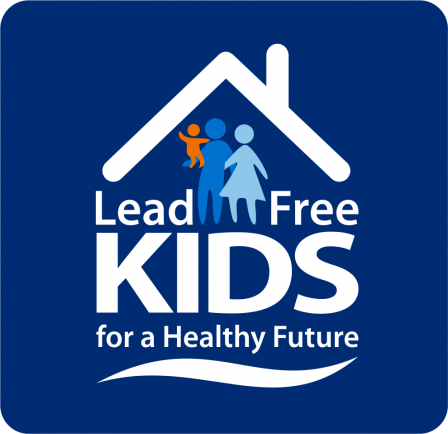
MEDIA RELEASE
From the Office of the Commissioner of Health, Dr. Gale R. Burstein
Date October 30, 2015
CONTACT: Mary C. St. Mary/Mary.StMary@Erie.Gov
Phone: 716.858.4941/ Mobile: 716.253.3925
ECDOH Recognizes
National Lead Poisoning Prevention Week
Children Most at Risk—Knowledge & Prevention are Key!
ERIE COUNTY, NY— County Executive Mark C. Poloncarz and the Erie County Department of Health (“ECDOH”) participated this past week in activities acknowledging the annual National Lead Poisoning Prevention Week.
County Executive Poloncarz issued an executive proclamation that proclaimed October 25-31, 2015 to be “Lead Poisoning Prevention Week in Erie County”. ECDOH’s Division of Environmental Health provides education to residents about the dangers of lead, generally found in paint in houses that were built prior to 1978. With the Buffalo housing stock being among the oldest in the nation, the threat of a real poison—lead—being ingested or inhaled by a child remains a very serious concern.
“Lead poisoning is entirely preventable. The keys are to stop children from coming into contact with lead and to treat children who have been poisoned by lead” said Dr. Gale Burstein, Erie County Commissioner of Health. “Exposure to lead, even in small quantities, can cause learning disabilities, behavioral problems, and, at very high levels, seizures, coma, and even death. Young children, when exposed to high levels of lead in house dust, are particularly vulnerable. Our collaborative prevention efforts are vital as there are no medical treatments that can permanently reverse the adverse health effects in children who have been exposed to lead.”
The only way to know for sure if a child has been exposed to lead is with a blood test. Lead screening tests sometimes take blood from the finger, but it is better and more accurate to take the blood from a vein in the arm. The test measures the amount of lead in the blood. If parents think that their child has been exposed to lead, they should talk with their pediatrician about getting a blood test to check for lead.
There are other ways to take precautions to avoid exposing children to lead. They include:
•Test your home for lead. If your home was built before 1978, call the Division of Environmental Health (716-961-6800) for information about lead testing for your home. If you don't know how old your home is, assume there is lead. Homes in the Northeast and Midwest are most likely to have lead in paint. Ask the landlord about lead before you sign a lease. Before you buy a home, have it inspected for lead.
•Learn about safe ways to make repairs/renovations. Call the Division of Environmental Health (716-961-6800) for information about lead-safe training classes for do-it-yourself home owners. Be sure to get lead-safe training or use a certified contractor, as removing lead paint on your own can often make the condition worse. If work is not done the safe way, you and your child can be harmed by increased exposure to lead in dust. Always keep your child away from renovation areas until everything is cleaned up.
•Keep children away from old windows, old porches, and areas with chipping or peeling paint. Cover it with duct tape or contact paper until it can be completely removed. If you rent your home, let your landlord know about any peeling or chipping paint. Landlords are legally required to repair lead problems found on their property.
•Do not allow your child to play in the dirt next to your old home. Plant grass over bare soil or use mulch or wood chips.
•Clean your home regularly. Wipe down floors and other level surfaces with a damp mop or sponge. Taking shoes off at the door can help reduce tracking in dirt.
•Teach your children to wash their hands, especially before eating. Wash pacifiers and toys regularly.
•Keep clean. If your work or hobbies involve lead, change your clothes and shoes and shower when finished. Keep your clothes at work or wash your work clothes as soon as possible.
•Use cold tap water for mixing formula, drinking, or cooking. If you are in an older home, run the water for several minutes before using it in the morning and anytime it has not been used for 8 or more hours. Always start with cold water for drinking or cooking.
•Eat healthy. Give your child a well-balanced diet that includes breakfast and food high in calcium and iron. A good diet can help your child absorb less lead.
“Our dedicated team of experienced sanitarians and public health nurses are ready to assist any Erie County family in need to help them avoid or eliminate a lead exposure problem,” concluded Burstein.
# # #
For More Information:
Erie County Department of Health
Center for Disease Control and Prevention
Environmental Protection Agency (EPA)
American Academy of Pediatrics
U.S. Department of Housing and Urban Development


